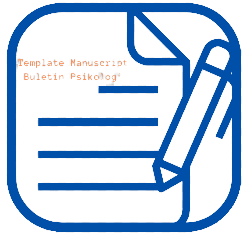Menyusun Model yang Efisien dan Efektif dari Dimensi-Dimensi School Wellbeing untuk Memprediksi Prestasi Belajar Matematika
Abstract
The study aimed to discover the combination of the variables of social relationships and means for self-fulfillment was effective for predicting students’ performance in mathematics. The subjects were 83 students of 11th grade of senior high school students in Yogyakarta. The variables were measured using the self-efficacy scale, teacher-student relationships scale, student attachment scale, parent support scale, school climate scale, and mathematics midterm exams. The data were analyzed using Stepwise regression analysis. The results indicated that out of the five independent variables, self-efficacy and teacher-student relationships were the most effective predictors. The contribution of both to mathematic performance amounted 13.3 percent, which was 6.3 percents higher if compared with self-efficacy only as single predictor. In addition, out of the five variables tested, it was the school climate did not have a significant effect on mathematic performance.
Keywords
self-efficacy; students-teacher relationships; student engagement; parental support; school climate; mathematic performance
DOI: 10.22146/jpsi.6940
Refbacks
- There are currently no refbacks.
Copyright (c)







